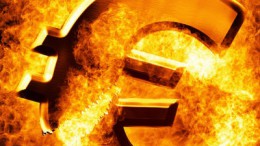The European Central Bank is dead
By Luis Arroyo, in Madrid | The ECB has lost all his monetary gunpowder, as this has become fragmented. In this graph I saw recently on the Greek money supply, monetary aggregates M1 M2 and M3 have collapsed. Deposits are falling, like savings accounts and time deposits. However, the monetary base or the money issued by the ECB is the same for everyone. What happens is that in normal countries the banking sector does not experience problems to expand its assets (loans), what results in an increase in deposits. The multiplier effect works. But what happens…






